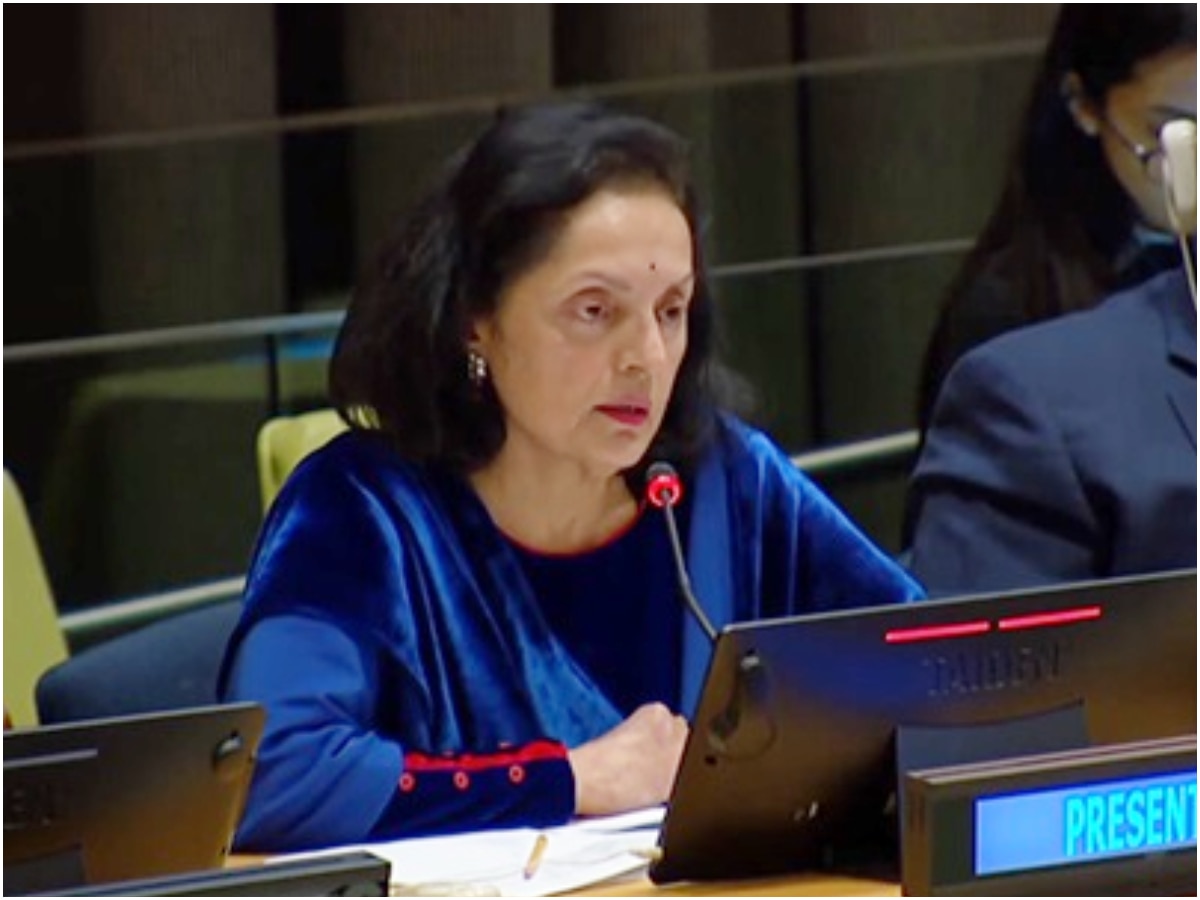India’s Permanent Representative to the United Nations Ruchira Kamboj highlighted the need for immediate reforms to the United Nations Security Council (UNSC).
New York: India’s Permanent Representative to the United Nations Ruchira Kamboj, while speaking at the 78th session’s informal meeting on Saturday, emphasized the need for immediate reforms to the United Nations Security Council (UNSC). Highlighting that the discussions on the reforms have been ongoing for decade, Kamboj said, “world and our future generations can no longer wait”.
“Discussions on the reforms of the Security Council have been ongoing earnestly for well over a decade since the early 1990s. The world and our future generations can no longer wait. How much longer must they wait?” Kamboj questioned over the inordinate delay for introducing of reforms in the world body.
As the world approaches the 80th anniversary of the United Nations and a crucial summit this September, Kamboj urged concrete progress toward reforms, emphasising the importance of heeding the voices of the younger generation and addressing historical injustices, particularly in Africa.
Kamboj warned against maintaining the status quo and proposed a more inclusive approach, suggesting that restricting the expansion of the Security Council only to non-permanent members would risk increasing disparities in its composition. She highlighted the need for representativeness and equitable participation in the Council’s composition to enhance its overall legitimacy.
Addressing concerns about the veto power, Kamboj stressed that it should not hinder the reform process. She advocated for flexibility on the veto issue for constructive negotiations and proposed that new permanent members should not exercise the veto until a decision is made during a review.
“Let me say also that while the new permanent members would, as a principal, have the same responsibilities and obligations as current permanent members, they shall not exercise the veto until a decision on the matter has been taken during a review,” Kamboj also said.
“Nonetheless, and therefore I say that we should not allow the veto issue to have a veto over the process of reform itself,” she added.
The G4, comprising India, Brazil, Germany, and Japan, echoed India’s call for greater representation in the non-permanent category, emphasising the importance of reflecting the diversity and plurality of views from the 193 member states.
In a practical move, Kamboj suggested identifying specific groups or countries that deserve special consideration in the reform process and listening carefully to their voices.
“Member states should also make full use of the possibility of cross-regional arrangements to ensure that the diversity of the General Assembly membership is adequately reflected in the Council. To move the discussion from the abstract to the concrete, in our view, it would be useful for member states to first identify and define which specific groups or countries deserve special consideration in this regard and then carefully listen to their voices,” she also said.
Earlier on February 17, Kamboj also highlighted that India supports a comprehensive reforms of the United Nations Security Council across all five clusters, including an expansion in both the permanent and non-permanent categories.

